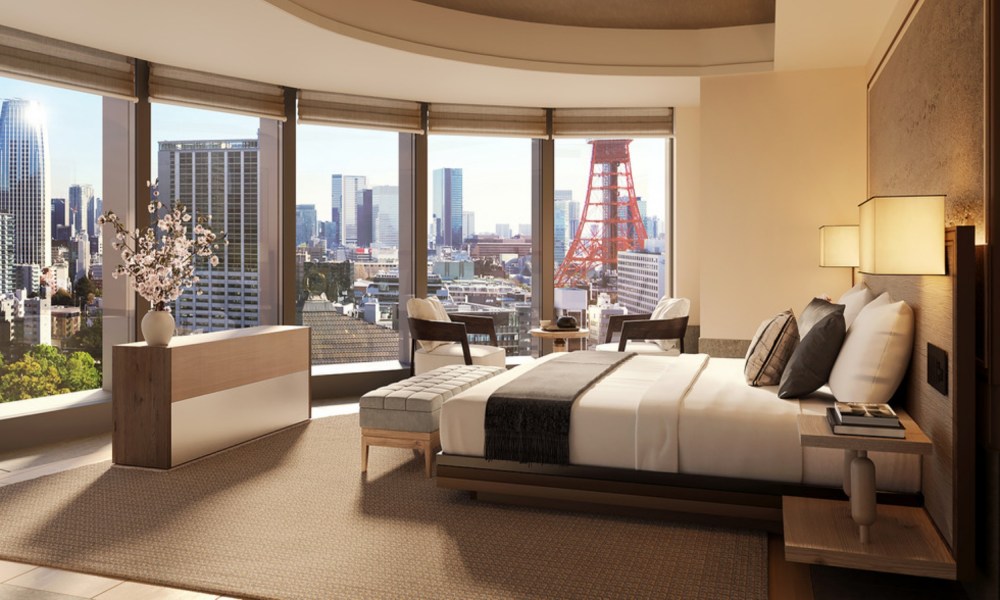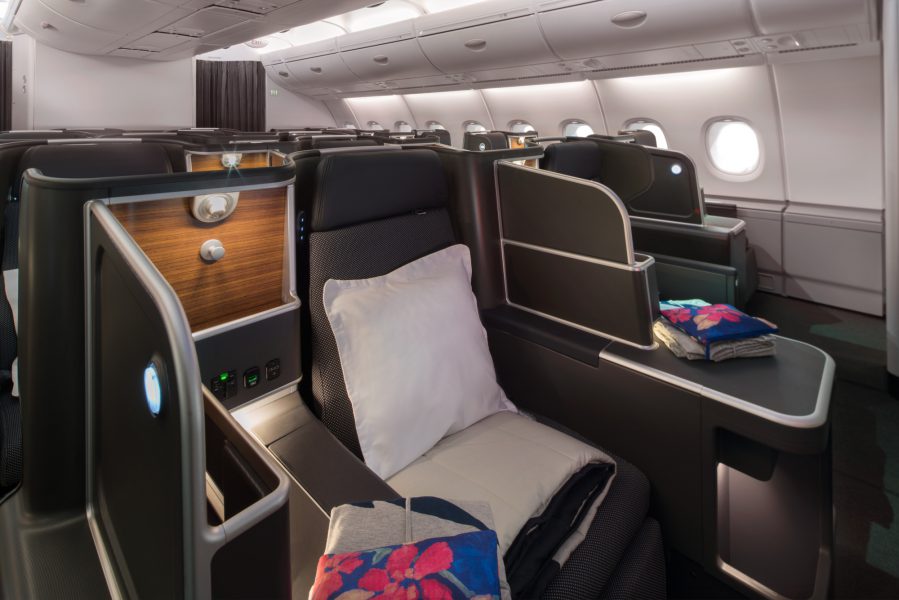Janu Tokyo is the first in a 12-strong global pipeline of projects across city, country and coastal destinations.
Combining Aman’s 35-year legacy with Chairman and CEO Vlad Doronin’s extensive expertise in global real estate development and hospitality, Janu, which means meaning ‘soul’ in Sanskrit, brings to life a trinity of inspiration, connection, and exploration.
“The arrival of Janu Tokyo signifies a pivotal moment in Aman Group’s progression – not only introducing the energetic spirit of Janu for the very first time – but also representing the evolution and enduring strength of Aman,” he said.
“As we unveil this new concept in one of the world’s greatest cities, my vision is for the Janu brand to trailblaze a new direction in hospitality whilst preserving, upholding and following in the illustrious footsteps of its legendary sibling Aman.”
A fitting flagship, Janu Tokyo is connected to the vibrant heart of Azabudai Hills – a city within a city, abundant in nature, culture and art – created and managed by Japan’s leading developer Mori Building Co. Ltd.

A progressive new neighbourhood by architectural visionaries, Azabudai Hills features Japan’s tallest skyscraper and 24,000 sqm of lush green space designed by Thomas Heatherwick, alongside offices, residences, educational institutions, galleries and over 150 luxury retail and dining outlets including a world-class Japanese speciality food market.
The only hotel within the development – located in the Residence A Tower designed by esteemed architects, Pelli Clarke & Partners – Janu Tokyo introduces 122 light-filled rooms and suites, eight dining venues, two boutiques and a 4,000 sqm state-of-the-art Wellness Centre.
Janu Tokyo reveals itself with a lofty gallery and reception, where a sense of space is fostered through considered use of glass and textured mouldings that reflect soft, glowing light.
Above, a ceiling embellished with intricate lattice woodwork and rows of woven rope arches (a modern interpretation of the traditional Japanese technique of shimenawa) connects guests from street level into the soul of Janu with comfort and ease.
Designed to enhance individual wellbeing through the concept of connectedness and the notion of the shared social experience, the paramount 4,000 sqm Wellness Centre features one of Tokyo’s largest gyms (340 sqm), as well as five movement studios for group exercise including the only boxing ring located within a hotel in Tokyo, alongside spinning, world-class training, recovery and relaxation facilities.
An extensive hydrotherapy and thermal area is centred around a 25-metre heated lap pool and features a separate lounge pool – traditionally a place for socialising in Japan – as well as two signature private Spa Houses, introducing an entirely new spa concept to Japan, with cold and hot plunge pools, Banya and Hammam.

There are nine treatment rooms as well as a recovery studio with hyperbaric oxygen therapy chamber.
Janu Tokyo offers a diverse range of dining destinations, spanning from comfort and familiarity to the excitement of the unknown. Elevating the neighbourhood’s dining scene, Janu Mercato is a lively, all-day emporium celebrating Italian culinary culture.
The adjoining marble-walled Janu Patisserie pays homage to European pastry traditions through an exquisite collection of the finest baked delights and parfaits available to enjoy in the café or to take away.
The hotel is also home to two Japanese restaurants. The first, Iigura, reinterprets the centuries old tradition of Edomae sushi in an intimate setting, offering a choice of exquisite à la carte sashimi and small plates, or omakase dining at the Hinoki wood counter.
The second, Sumi, serves as a modern interpretation of the traditional sumibiyaki grill, with organic seasonal ingredients cooked over charcoal and paired with premium wine and sake.
Completing the restaurant repertoire are the Janu Grill, with its spectacular show kitchen, two large wine cellars, bar and counter-style seating, and Hu Jing, where guests can savour Cantonese signatures such as roast duck, contemporary dim sum and seafood specialties.

Finally, in the Janu Lounge and on the Garden Terrace, afternoon tea and light snacks are served in a serene setting, while the Janu Bar presents an exclusive destination for inspired craft cocktails prepared by top tier mixologists.
On floors six to 13, Janu Tokyo’s rooms and suites start at 55 sqm, presenting timeless Asian-inspired interiors with contemporary European accents.
A strong focus on minimalism and symmetry encourages comfort, creating a harmonic balance of energy. Most offer their own private balconies immersing guests in the city skyline or Azabudai Hill’s surrounding greenery, while Corner and Tower View Suites benefit from dual-aspect views through magnificent arched windows.
Many also connect with neighbouring rooms and suites, creating a seamless ease for groups and families travelling together. All enjoy large bathrooms with double vanities, rain showers and bespoke soaking tubs – separated from their bedrooms by sliding partition walls – alongside spacious walk-in wardrobes and inviting living areas.
Janu Tokyo hotel reservations are now open, with stays commencing in March 2024. Nightly rates start from USD $944 inclusive of taxes and service charge.

Qantas’ brilliant Business Class ‘Suite’
Qantas operates direct flights to Tokyo with Airbus A330s that feature the airline’s suite-style Business Class cabin.
Qantas’ Business Class cabin is headlined by a ‘suite’ seat – now available on all the Boeing 787-9, Airbus A330-200 and Airbus A330-300 jets in the fleet and select Airbus A380-800s – that has been popular with executive and leisure travellers since it first arrived on the scene in 2016.
This next-generation Business Class seat from the Flying Kangaroo can be reclined for take-off and landing, and the cabin offering also includes top Australian food and wine and world-class entertainment.